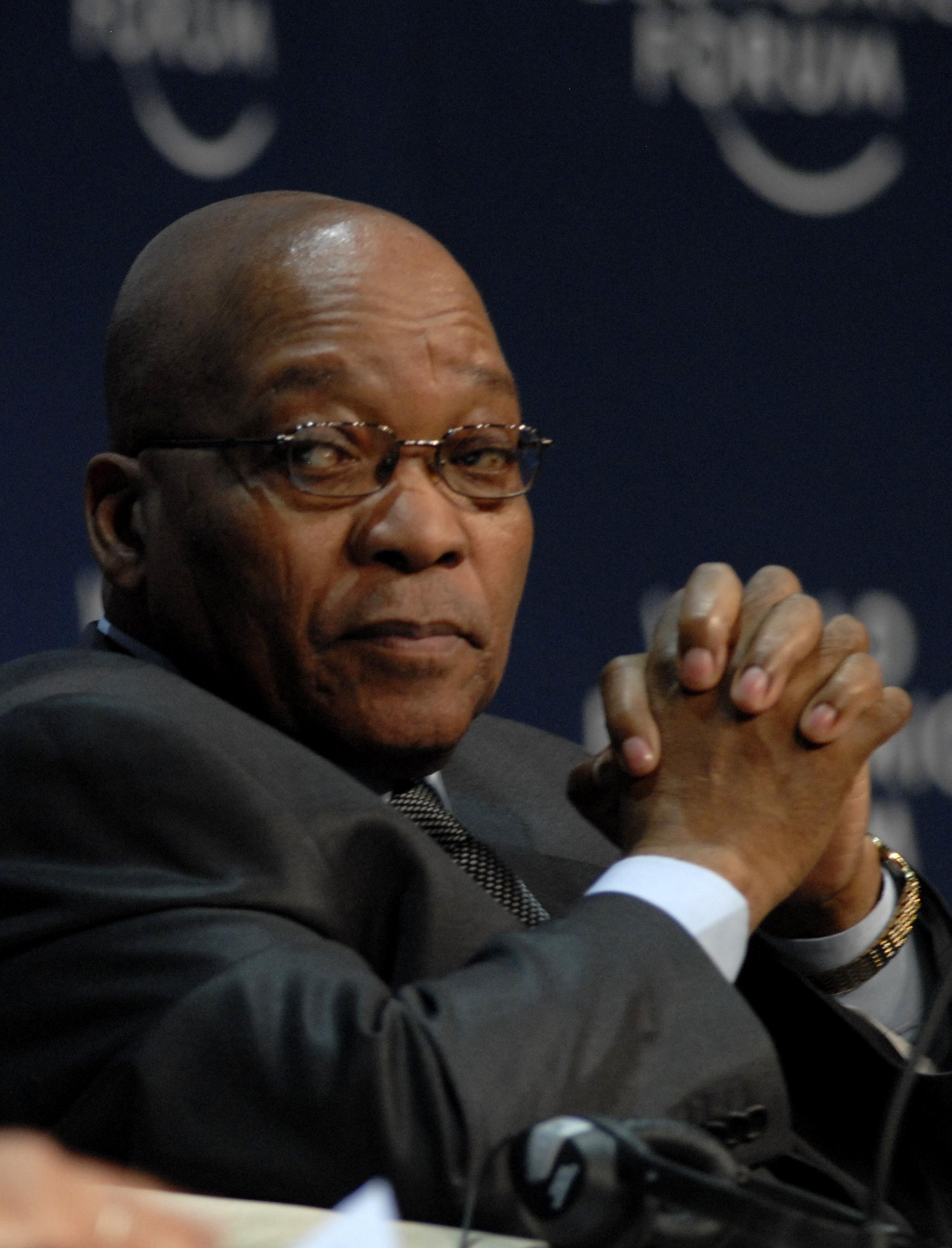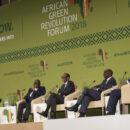South Africa: ANC leadership debate swamps meaningful discussion of policy – By Renee Horne


The soap opera surrounding Jacob Zuma's leadership of the ANC is blocking serious discussion of economic reform in South Africa.
This week in South Africa it seems like an entire nation’s hopes are pinned on the decision 4500 delegates will make at Mangaung in the Free State. More than 50 million South Africans at the mercy of policy resolutions determined by the ruling party, the African National Congress (ANC), which are likely to filter down to the overall policy objectives of the country.
Since my return to the country three months ago, I have been amazed that the leadership race, infighting and factionalism within the ruling party have been the absolute centre of debate. South Africans have been side-tracked and lured into the media euphoria about whether Jacob Zuma will be re-elected as ANC President, ultimately making him a virtual shoe-in for a second term following elections in 2014.
The drama intensified last week when Deputy President Kgalema Motlanthe stated he will challenge Zuma for the leadership. Multimillionaire tycoon Cyril Ramaphosa also threw his hat in to the ring for deputy president of the party, challenging National Executive Committee (NEC) members Tokyo Sexwale, Mathews Phosa and Motlanthe.
Then there’s the surprise sideshow of the three top leaders, regarded as the “Brains Trust” of the Tripartite Alliance. National Planning Minister Trevor Manuel, Congress of South African Trade Unions (Cosatu) General Secretary Zwelinzima Vavi and the South African Communist Party’s (SACP) Deputy General Secretary Jeremy Cronin have turned down nomination to serve on the ANC’s highest decision-making body, the NEC.
Explanations vary, but perhaps they believe it best to stick to their own constituencies or give young and upcoming leaders (Julius Malema was not mentioned) a chance. The most dispiriting explanation is that the Brains Trust has decided that it no longer wants to be associated with the ANC’s moral degeneration. The ANC leadership has suddenly caught on to the seriousness of this narrative, so much so that it has called for an organisational review at the Mangaung conference.
In Zuma’s opening address delivered on Sunday, he stated that part of the renewal process is the elimination of “the negative lobbying for positions which includes smear campaigns in the media as well as gossip and rumour-mongering about one another. Also common are the disrespectful public spats as well as hurling insults at other comrades or members of the public, thereby bringing the ANC into disrepute.
Zuma also stated that the ANC leadership “…condemn[s] the use of violence, and strongly condemn[s] the killings of ANC leaders including the ANC Dr Kenneth Kaunda regional secretary, in North West, Comrade Obuti Chika…This then raises the question what exactly could be so much at stake that people would go so far to get their own way in the organisation?”
Mr President, the answer to this question is the deep level of inequality within the South African society. Moreover, the opportunists who use the ANC for self-gain and enrichment, while many South Africans still live in poverty. Indeed, the ANC needs an organisational review, but the Mangaung debate should focus more on socio-economic transformation policy directives than navel-gazing at its own leadership.
The inequality gap
In his opening speech, President Zuma did well to acknowledge that South Africa faces dire problems: “we must accept that the process of overcoming unemployment, poverty and inequality…building a national democratic society will be long and hard. The average annual African household income is R60 613 and the white household income is at R365 164. Close to 1.9 million African households reported no income at all, indicating the challenges…South Africa is one of the most unequal countries in the world.”
The root problem of the Marikana miners’ strike, which claimed the lives of 47 people in August this year, and subsequent wildcat strikes in the country, is that while half of the country struggle to put food on the table, a small portion (not merely white South Africans, but those in the Black elite too) continue to prosper. These strikes have had a negative effect on the economy with the downgrade of South Africa’s credit ratings by both Moody’s Investors Service and Standard & Poor’s. Foreign Direct Investment has also decreased four-fold in the last 10 years – from R40bn to R10bn.
Investors are nervous and banks are stating that delegates at Mangaung need to provide clear policy directives to improve investor confidence. The problem is that ANC conferences are usually focused on individuals rather than on policy directives. Without policy directives (whether good or bad), there’s uncertainty and a consequent lack of implementation. For example, the nationalisation issue was on the ANC policy conference agenda earlier this year, but thus far no conclusion has been reached.
The thorny issue of policy
“The conference is a watershed moment in policy direction for the ANC and its second transition” stated Jeff Radebe, ANC Deputy Chairperson. Radebe was referring to the thorny issue of economic policy, specifically nationalisation. Mangaung will have to put that issue to rest once and for all as it causes economic uncertainty and makes investors nervous. There are indications that the conference will rule out nationalisation, but strategic intervention in the form of a new tax on mining profits and “˜discounting’ the price of some minerals for local manufacturers. Economists are warning this will put further strain on the mining sector as nearly 60 percent of the country’s platinum mines do not currently make a profit. There are still tough times ahead, as the mining sector will shed 10,000 jobs in the first quarter of next year.
Since 1994, the mining sector has been at the heart of South Africa’s racial redress policy “˜Black Economic Empowerment’ (BEE), which has made many of the politically connected (the Black Elite) ultra-wealthy. To the surprise of many delegates at the conference, President Zuma called for the tendering system to be reviewed, “Even a granny in a rural area knows about a tender,” he said in isiZulu. He added, “Conference may wish to deliberate on tendering, which is often open to abuse currently”.
Steps at deterring the Black Elite have seen Broad Based Black Economic Empowerment (BBBEE) legislation in 2003, but the focus is primarily on ownership and not on skills and enterprise development. “We are in the process of amending the Broad-based Black Economic Empowerment Act and have also agreed to revise the points in the scorecards so that we prioritise local industrial development, skills and small business development,” said Zuma. While the review of the BBBEE scorecard has seen a more simplified version be developed, implementation is the key to ensure enterprise development, while combating fraud in the system.
According to the National Planning Commission and the National Development Plan (NDP), the BBBEE “model is flawed…. it poses significant challenges in sustainably meeting the objectives of the programme. Solutions are not easy to find.” The Plan, however, concludes by stating “Despite these difficulties, the broad policy approach should continue, evolving to find better models of empowerment. In implementing black economic empowerment, policy has to remain true to its intent to broaden ownership and control of production to black people and women, without undermining overall levels of investment or employment creation.”
The NDP is seen as a blueprint to stimulate the South African economy, job creation and alleviate unemployment. There has been debate on whether this policy deserves special attention at the conference. President Zuma said, “We should always make sure that our people, the motive forces, remain mobilised and focused around our national development vision, otherwise society may lose sense of direction.”
At Mangaung the starting point for policy direction should be the NDP, moving the debate from the leadership race to crucial policy directives of socio-economic transformation. Over the next four days, delegates at Mangaung should put the nation’s aspirations first and individual interests last.
Dr Renee Horne is the Head of the BBBEE Unit at the Gordon Institute of Business Science (GIBS), South Africa





